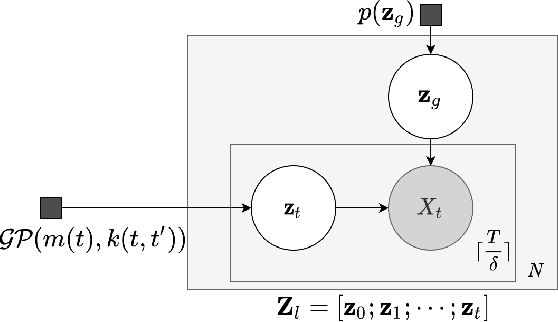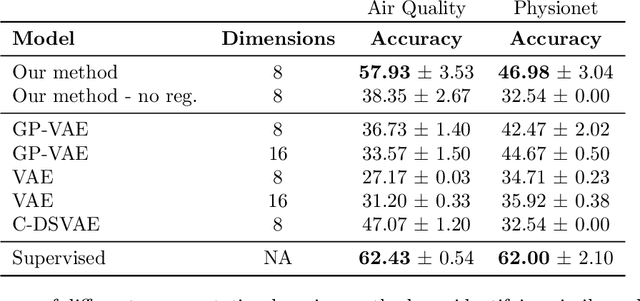Decoupling Local and Global Representations of Time Series
Paper and Code
Feb 11, 2022



Real-world time series data are often generated from several sources of variation. Learning representations that capture the factors contributing to this variability enables a better understanding of the data via its underlying generative process and improves performance on downstream machine learning tasks. This paper proposes a novel generative approach for learning representations for the global and local factors of variation in time series. The local representation of each sample models non-stationarity over time with a stochastic process prior, and the global representation of the sample encodes the time-independent characteristics. To encourage decoupling between the representations, we introduce counterfactual regularization that minimizes the mutual information between the two variables. In experiments, we demonstrate successful recovery of the true local and global variability factors on simulated data, and show that representations learned using our method yield superior performance on downstream tasks on real-world datasets. We believe that the proposed way of defining representations is beneficial for data modelling and yields better insights into the complexity of real-world data.
 Add to Chrome
Add to Chrome Add to Firefox
Add to Firefox Add to Edge
Add to Edge